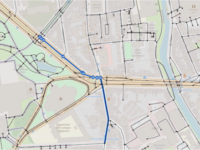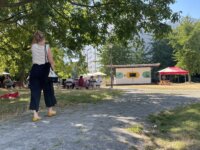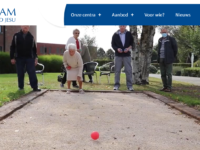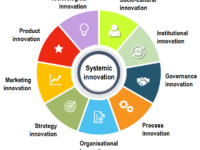Born in Belgium Professionals is a RIZIV project that offers a digital tool, developed by and for professionals who work with or for (vulnerable) pregnant women. The tool is an online, shared platform that centralizes information about the psychosocial situation of the pregnant woman and makes it available to her care providers and healthcare providers from the (para)medical and social sector, fully in accordance with privacy legislation (GDPR).
Case Study Library
Where innovations are collected and shared to disseminate and replicate good ideas

Innovations:
0
This website, as well as any data and map included herein, are without prejudice to the status of or sovereignty over any territory, to the delimitation of international frontiers and boundaries and to the name of any territory, city or area.
More than 80% of the residents in residential elderly care suffer from unwanted urine loss. This is why care staff check on them regularly, day and night. In order to minimize these disturbing and time-consuming incontinence rounds, the residential care organization Zorg-Saam set out to test new incontinence solutions equipped with sensor technologies that detect when bandages are saturated and alert care staff. With this innovation, supported by the The Programme for Innovation Procurement of…
Case Study
Bicycle Barometer: a Citizen Science Platform for Improving Bicycle Safety for High School Students

Adolescents are often victim of traffic accidents when in traffic between home and school. Cities need feedback from this group to optimize bicycle traffic safety and infrastructure, but it can be difficult to reach and influence youngsters individually. Together with more than 70 Flemish high schools, Ghent University (UGent) has developed the Bicycle Barometer, a citizen science ICT platform to collect information about bicycle behaviour and perceived road safety. The web platform enables…
Satellites collect images that can be used to identify deformations of infrastructure at millimetre level with InSAR analysis. This project investigates the use of InSAR in the monitoring of deformations of bridges. Can InSAR be of added value for a structural health assessment of bridges which, with aging assets over the largest part of Europe, becomes more and more critical? Nowadays the monitoring of bridges is very labour intensive and often not without danger. InSAR may reduce this.
Gov Buys Innovation is a modern version of public procurement, axed on the active search for innovative solutions available on the market. By reconsidering the way of interaction between the public and the private sector, we aspire to transform public entities into pioneers for new creative ideas, modernising countries in the benefit of private companies and all citizens.
The eBox Citizen is a digital mailbox in which Belgian citizens can receive official documents from Belgian public instances at every level. Given the complex nature of Belgium’s federal state structure, the deployment of such a centralized eBox has proven to be a crucial step in the continuous digitalization of public services in Belgium. It got an enormous boost throughout the Covid-19 pandemic, as the quickest way for citizens to receive an invitation for their vaccination was via their…
Becoming a circular economy entails a deep transformation of industry, consumer behavior and policy. Traditional innovation funding focuses on technology, punctual projects and (single) companies, which alone fail to bring the required systemic change. Hence, the Flemish government launches the subsidy programme Living Labs Circular Economy for projects tackling complex challenges, with a high ambition level, in co-creation with very diverse stakeholders and employing system innovation methods.
Connectoo Training aims to reduce the digital divide in Belgium by training public officials to better take into account citizens on the digital fringe. Accessible free of charge and 100% online, connectoo trains and certifies public agents in the challenges of digital inclusion and in the reflexes to adopt to help the most vulnerable citizens with online administrative procedures. Together, we are reconnecting digital public services to citizens. In 2022, the digital divide remains more than…
Case Study
Collections of Ghent – Connecting citizens through digitised cultural heritage reuse and…

Collections of Ghent is an EU-funded innovation project designed to tackle the urban challenge: How to digitise cultural heritage beyond the cultural institutions, on a city level or higher. And how to use it to improve social cohesion and inclusion within a neighbourhood. It is both a digital transformation project, and a social innovation project where we research how digital cultural heritage can be used in co-creative and participative way.
In order to bridge the gap between representatives and represented, the Brussels Parliament intends to open its doors to all the inhabitants of the Brussels-Capital Region. It has therefore decided to include in its rules of procedure a system of citizen participation: the Deliberative Committees (commissions délibératives). These committees, made up of 15 elected officials and 45 citizens chosen by lot, are responsible for drawing up recommendations on a given topic, which the Parliament must…




